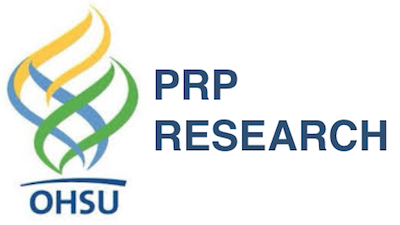
Nearly two years ago (May 17, 2017) I received an email from Dr. Teri Greiling, Assistant Professor of Dermatology at Oregon Health and Science University in Portland, Oregon.
Like every PRP patient and caregiver, Dr. Greiling lamented the fact that not a single therapeutic trial had ever been conducted for patients with PRP. She also recognized that PRP was also lacking validated measurement tools to properly gauge the severity of our disease. Inspired by one of her PRP patients, she decided to do something. She pondered the question we want PRP researchers to ponder: What if…?
 She wanted to go beyond clinical trials and re-invigorate a PRP Registry with questionnaires to “active” PRP patients every six months updating their disease activity, symptoms, and medications used. She wrote: “The more information we have about how severely PRP affects quality of life and which medications are useful or not, the better equipped we are for future therapeutic trials.”
She wanted to go beyond clinical trials and re-invigorate a PRP Registry with questionnaires to “active” PRP patients every six months updating their disease activity, symptoms, and medications used. She wrote: “The more information we have about how severely PRP affects quality of life and which medications are useful or not, the better equipped we are for future therapeutic trials.”
We started talking. She kept thinking. She wrote a proposal. On May 8, 2018. I received the long-awaited call. All the approvals had been made by OHSU and Lilly (manufacturer of Taltz®) and Dr. Greiling’s PRP research project had been given the green light to treat patients with PRP.
✽ Estimated Study Completion Date: November 30, 2019
Improvement in itch [ Time Frame: 24 weeks ]
✽ Itch will be measured using a numeric rating scale from 0 (no itch) to 10 (worst itch imaginable)
✽ Male subject age: 18-99
✽ Female subject age 18-99; either of non-childbearing potential or of childbearing potential who test negative for pregnancy and agree to use a reliable method of birth control or remain abstinent during the study and for at least 12 weeks following the last dose of ixekizumab.
✽ PASI score of 10 or greater at baseline.
✽ Are a candidate for phototherapy and/or systemic therapy.
✽ Willingness to travel to OHSU for TWO study visits, OR living less than 30 miles from OHSU and willing/able to participate in remote videoconferencing visits with access to a computer with internet capabilities and webcam.
✽ Have given written informed consent approved by the OHSU Investigational Review Board
✽ Previous treatment with any agent that targets interleukins 17 specifically.
✽ Systemic treatment or phototherapy for PRP within the past 4 weeks or 5 half-lives prior to baseline, whichever is longer. For biologic therapies, the specific washout periods used will be: etanercept <28 days; infliximab, adalimumab, or alefacept <60 days; golimumab <90 days; ustekinumab <8 months; rituximab or efalizumab <12 months.
✽ Have a known allergy or hypersensitivity to any biologic therapy that would pose an unacceptable risk to the subject if participating in this study.
✽ Have a live vaccine within 12 weeks prior to baseline or intend to have a live vaccine during the course of study.
✽ Had any major surgery within 8 weeks prior to baseline or will require major surgery during the study that, in the opinion of the investigator, would pose an unacceptable risk to the subject.
✽ Presence of significant uncontrolled cerebrovascular, respiratory, hepatic, renal, gastrointestinal, endocrine, hematologic, neurologic, or neuropsychiatric disorders, or abnormal laboratory screening values that, in the opinion of the investigator, pose an unacceptable risk to the subject if participating in the study or of interfering with the interpretation of the data.
✽ Presence of inflammatory bowel disease
✽ Have clinical laboratory test results at screening that are outside the normal reference range of the population and are considered clinically significant, or have any of the following specific abnormalities: Neutrophil count <1500 cells/µL, lymphocyte count <500 cells/µL, platelet count <100,000 cells/µL, AST or ALT > 2.5 times the upper limit of normal, hemoglobin <8.5 g/dL for male subjects and <8.0 g/dL for female subjects, serum creatinine >2.0 mg/dL.
✽ Women who are lactating or breastfeeding.
✽ Have any other condition that precludes the subject from following and completing the protocol, in the opinion of the investigator.
✽ Are investigator site personnel directly affiliated with this study and/or their immediate families (spouse, parent, child, or sibling).
✽ Are currently enrolled in, or discontinued from a clinical trial involving an investigational product or non-approved use of a drug or device within the last 4 weeks or a period of at least 5 half-lives of the last administration of the drug, whichever is longer, or concurrently enrolled in any other type of medical research judged not to be scientifically or medically compatible with this study.
